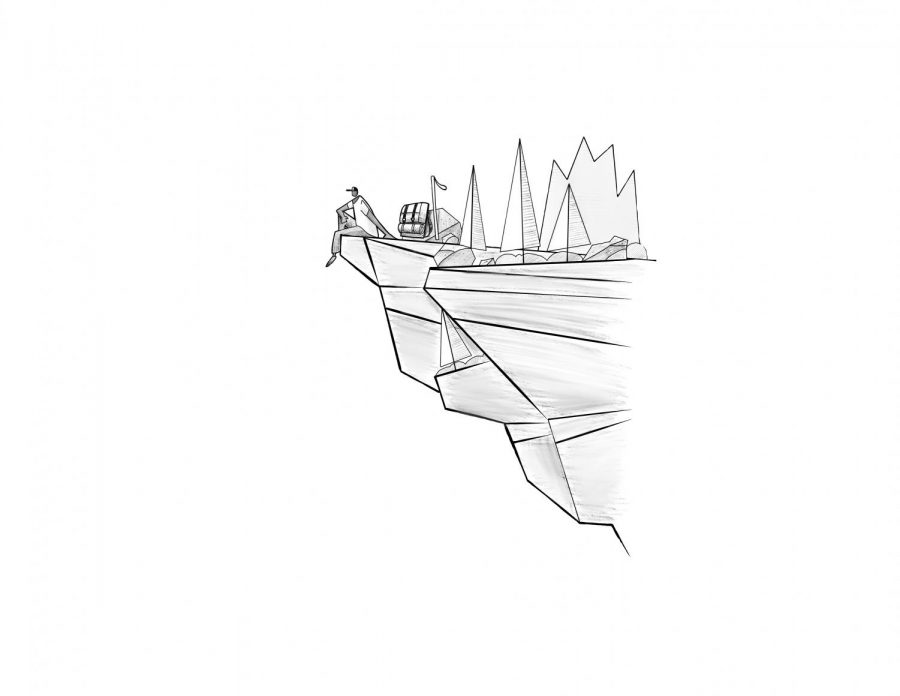Nature belongs to everyone
Race and wealth should not be barriers to hiking and outdoors culture
January 24, 2018
The Outdoor Recreation Center hosted the annual Banff Mountain Film Festival Monday night. The collection of videos brought attention to the worrying lack of diversity in hiking and outdoors culture, and efforts to remedy the problem.
While the seven-and-a-half-minute promotional video provided by Banff featured almost exclusively white outdoorsmen, Jonathan Stahl, UREC assistant director, made an effort to provide the most diverse selection available.
“Many outdoor sports have a long history associated with high price tags, elitism, lack of access and limited diversity,” Stahl said.
Outdoor communities are commonly known for being pompous white clubs, allowing only those of wealth and experience to participate. This mostly white hiking culture has difficult barriers for people of color to overcome. This worried Stahl, as he has seen in the past that this film festival lacked diversity.
“The outdoor industry as a whole has been making improvements toward reaching and including more people from all walks of life,” Stahl said, “but we still have a long way to go.”
While the promotional video, combined with a past of non-inclusive festivals, was unsettling, Stahl has taken as many steps as possible to create a hiking culture on campus that is welcome to all. This is necessary if WSU is to create an inclusive environment for its students.
“I specifically asked our representative from Banff to avoid excessive content featuring privileged white dudes complaining about how hard their life is,” Stahl said.
Stahl, who has coordinated this event for many years, said it has not always run smoothly. On one occasion, Stahl recalled, he booked the film festival on the same day as an MLK event. Presenters speaking about racial justice and feminism performed next door to films featuring extreme sports executed by mostly white men.
“We had folks coming in through the exterior doors of the CUB into the lobby, and it was painfully evident that the majority of white people with puffy jackets were going to Banff, while most people of color went upstairs to the MLK event,” Stahl said.
Painful memories like these show the need for more inclusive films. Coupled with these untasteful memories are positive learning experiences Stahl has had in the past decade of hosting this event.
“Last year one of my favorite films was about 14-year-old Ashima Shiraishi and 15-year-old Kai Lightner pushing the limits of rock climbing as a sport,” Stahl said. “That film was particularly inspiring to my daughter, who was six at the time, to see a young female climber do things that her dad, or any other climber in the world, could not do.”
While there is a long battle ahead to open hiking culture to people from all backgrounds, WSU’s Outdoor Recreation Center has been working toward an outdoor community we can be proud of.
Next month the ORC will host another film festival, this time devoted to all female casts. Titled ‘No Man’s Land,’ these featured films will depict a variety of women and their experiences within the male-dominated extreme sport culture.
Nature doesn’t belong to wealthy white people. Nature offers peace of mind and heart-stopping adventures that everyone deserves to experience.










